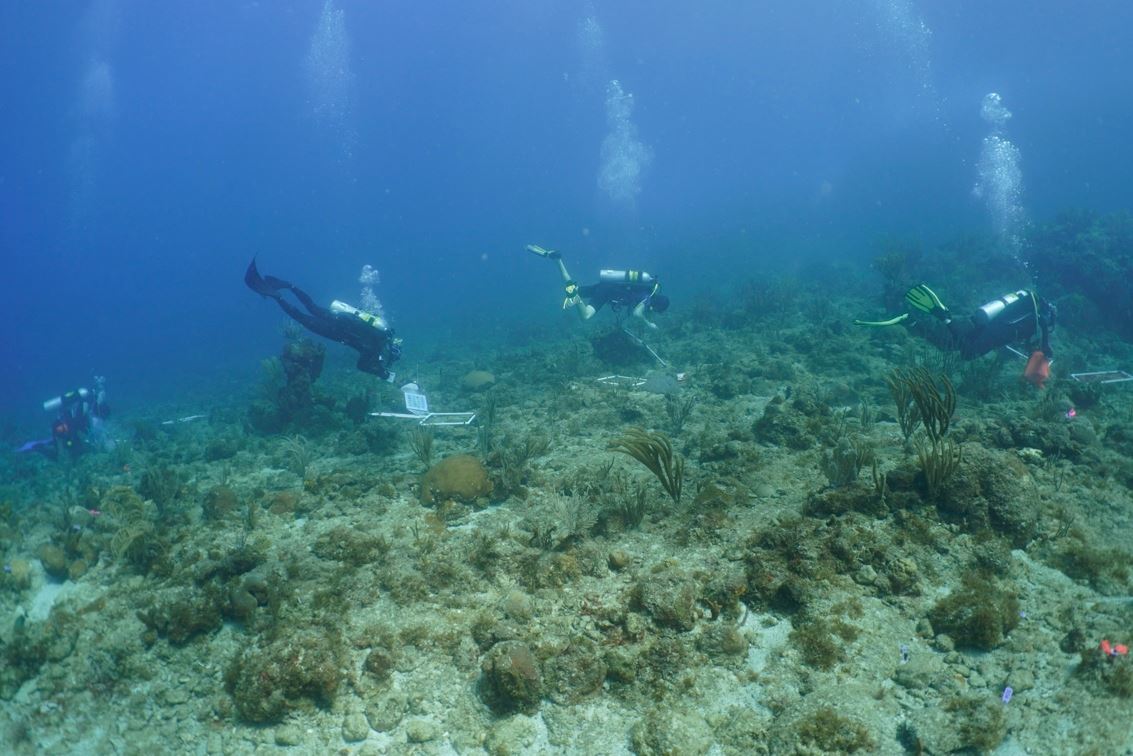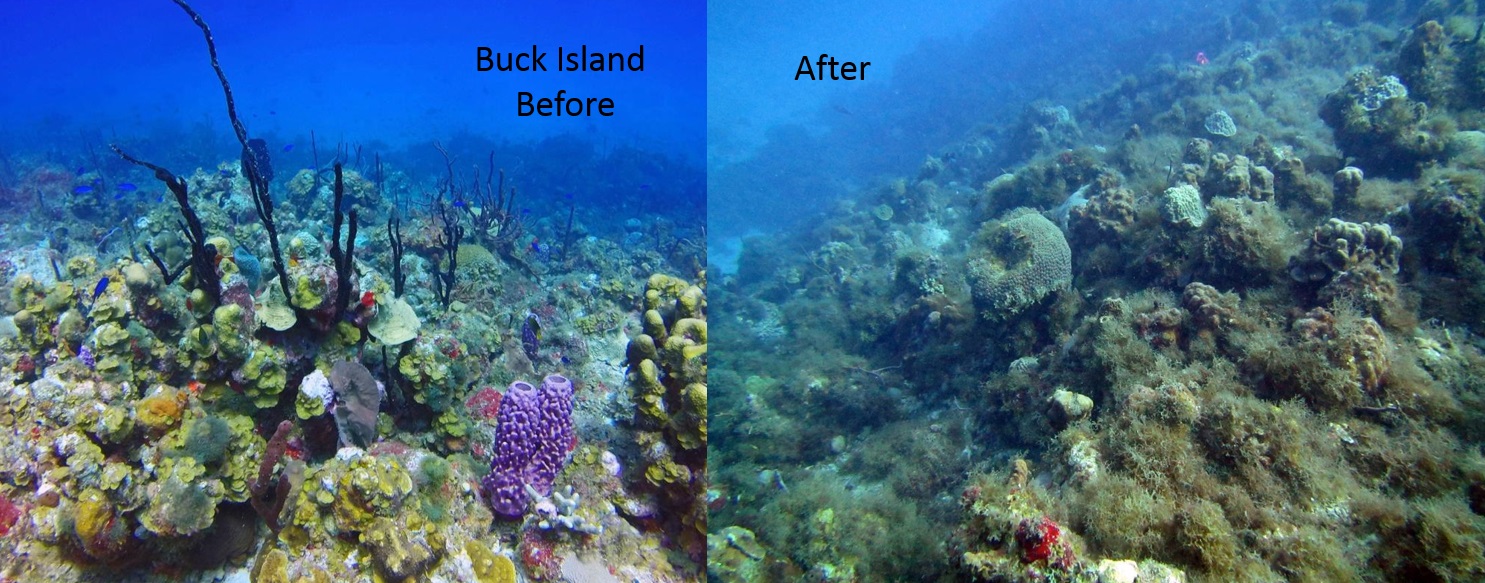
AAUS scientific divers Deborah Gochfeld (OM: University of Mississippi), Marilyn Brandt (OM: University of the Virgin Islands), and Julie Olson (University of Alabama, through OM: Dauphin Island Sea Lab) have received a National Science Foundation RAPID grant to assess the impacts of back-to-back hurricanes on coral reefs, and their ability to recover. This interdisciplinary research team is examining impacts to the sponge communities at sites they have monitored on St. Thomas USVI, over the past several years. Sponges are increasingly recognized as crucial components of coral reef ecosystems worldwide, providing habitat, food and nutrients for various coral reef species. However, while impacts of hurricanes on corals have been known for decades, this is the first time that scientists have examined the effects of hurricanes on sponges, and how that influences recovery of the coral reef community.

The initial fieldwork for this project occurred in December 2017, approximately 2 months after the category 5 hurricanes Irma and Maria hit the USVI. Using the University of Miami’s research vessel, F.G. Walton Smith, the research team performed surveys at six sites surrounding St. Thomas that varied in their pre-hurricane levels of runoff from land-based sources. They found a loss of coral cover, and an even greater loss of sponge cover, along with dominance of the benthos by fleshy macroalgae over that interval. In addition to surveys, the scientific divers cleared plots of algae and/or sponges to assess the degree of competition between algae, corals and sponges, and how that might impact reef recovery.
The research cruise also served as a training opportunity for AAUS student divers from UVI. The team will return to the USVI in March 2018 to follow sponge and coral recovery within cleared plots, and along permanent transects on St. Thomas’ reefs. The results of this research will have significant implications for coral reef management strategies, and for our broader understanding of coral reef ecology.
